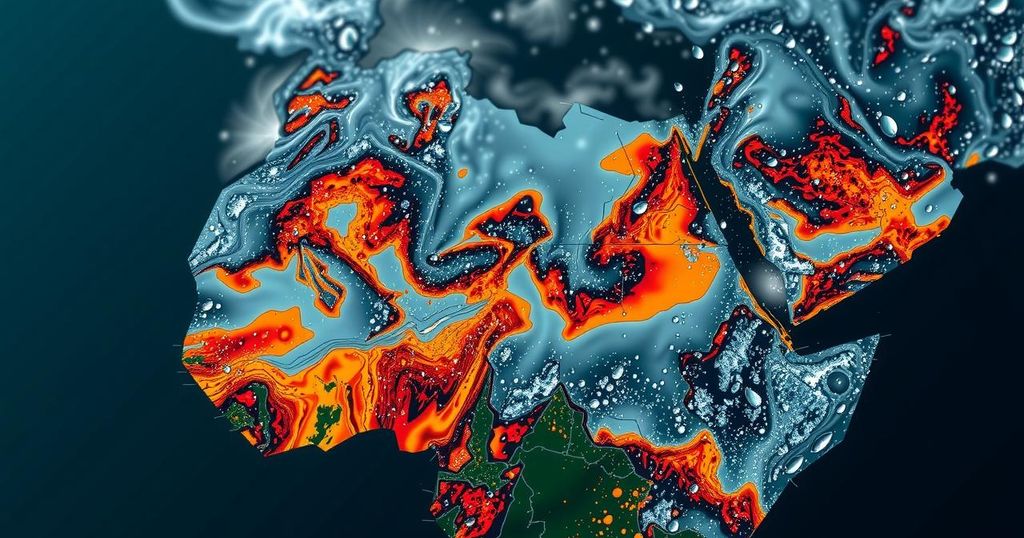Recent floods in Cameroon, Chad, Niger, Nigeria, and Sudan have been significantly intensified by climate change, leading to thousands of deaths and displacements. Scientists state that climate change is making seasonal rainfall in these regions 5-20% more intense, with potential future consequences if global temperatures continue to rise. The call for increased investment in infrastructure and financial support from wealthier nations is emphasized in light of COP29 discussions.
Recent devastating flooding across multiple countries in Central and West Africa, including Cameroon, Chad, Niger, Nigeria, and Sudan, has been significantly exacerbated by climate change, as confirmed by a collective of international scientists. According to World Weather Attribution (WWA), rising global temperatures have intensified this year’s seasonal rains by approximately 5 to 20% in the Niger and Lake Chad regions. The research indicates that if climate change continues unchecked, such extreme rainfall could become a regular occurrence annually. Izidine Pinto, a researcher at the Royal Netherlands Meteorological Institute, noted, “Spells of heavy summer rainfall have become the new normal in Sudan, Nigeria, Niger, Cameroon, and Chad.” The impact of these floods has been catastrophic, with approximately 1,500 fatalities and over one million individuals displaced, as reported by the United Nations Office for the Coordination of Humanitarian Affairs (OCHA). Many water containment systems, including dams in Nigeria and Sudan, have been overwhelmed by the unprecedented volume of rainfall. Future projections suggest that if global warming reaches a threshold of 2 degrees Celsius (3.6 degrees Fahrenheit), which could occur as soon as the 2050s, similar downpours may become almost annual events in these regions. WWA advocates for enhanced investment in early warning systems and improvements to dam infrastructure to mitigate such disasters. Joyce Kimutai, a researcher at the Centre for Environmental Policy at Imperial College in London, emphasized that Africa, despite its minimal contribution to global carbon emissions, faces the brunt of severe climatic events. She reiterated the responsibility of the upcoming COP29 climate talks to compel wealthier nations to provide “meaningful finance” in support of affected regions.
The phenomenon of climate change has been extensively studied in relation to extreme weather patterns, with specific emphasis on its impact on precipitation intensity and frequency. In regions such as Central and West Africa, the interconnectivity of global warming and severe weather events has profound implications for local populations, whose resilience is often compromised by limited resources and infrastructure. The recent floods have not only highlighted the immediate dangers posed by intensified rainfall but also underscore a growing necessity for global collaborative efforts towards climate adaptation and mitigation, particularly in vulnerable areas that have contributed minimally to greenhouse gas emissions.
In conclusion, the recent floods in Central and West Africa serve as a stark reminder of the human cost of climate change, exacerbating the challenges faced by regions already burdened by economic and infrastructural vulnerabilities. The findings from WWA highlight the critical need for urgent climate action and financial support from the global community to enhance adaptive capacity in these affected areas. It is crucial that upcoming climate discussions prioritize the needs of under-resourced nations grappling with the repercussions of global warming.
Original Source: kfgo.com







